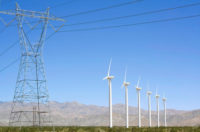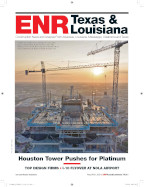
A Pennsylvania firm that aims to build large data centers, powered by off-grid powerplants from 212 MW to 310 MW in size, hopes to site one soon, despite the University of Delaware's decision this summer to scrap plans for a 900,000-sq-ft data center and an adjacent 279-MW combined heat-and-power plant in the city of Newark Del.
Residents and activists opposed to the size of the powerplant fought the project. But Gene Kern, CEO of The Data Centers LLC (TDC), West Chester, says it has customers in multiple states for data centers whose design features natural-gas-fired energy sources.
The centers have lower power costs and are more reliable than grid-connected facilities, he told ENR. A typical grid-linked center costs $24 to $28 per watt to develop; the TDC model costs between $5 and $7 per watt, Kern claims.
The centers are not built on spec but for clients that want the off-grid model. "We are a wholesale data-center provider," he says. "Few enterprises are building their own centers now."
TDC now is looking at other sites in mid-Atlantic states, including another in Delaware, to build its first project, with potential client projects also in Illinois, Colorado and Kansas. Kern declines to confirm exact locations.
Data centers will use a system that includes the primary power source and two spinning reserves to produce backup power that can be sold to the grid or, when not needed for data-center use, to a third party. A third generator will back up equipment that is down for maintenance. The concept is patent-pending, he notes.
Centers must be built near a natural-gas pipeline, Kern says, adding that the cost to develop each center is between $750 million and $1.5 billion, depending on size.
University officials termed the TDC approach "an efficient and viable transitional energy-generation technology" but said they were concerned that the powerplant's size would not be efficient in using and selling recovered heat throughout the year.




Post a comment to this article
Report Abusive Comment